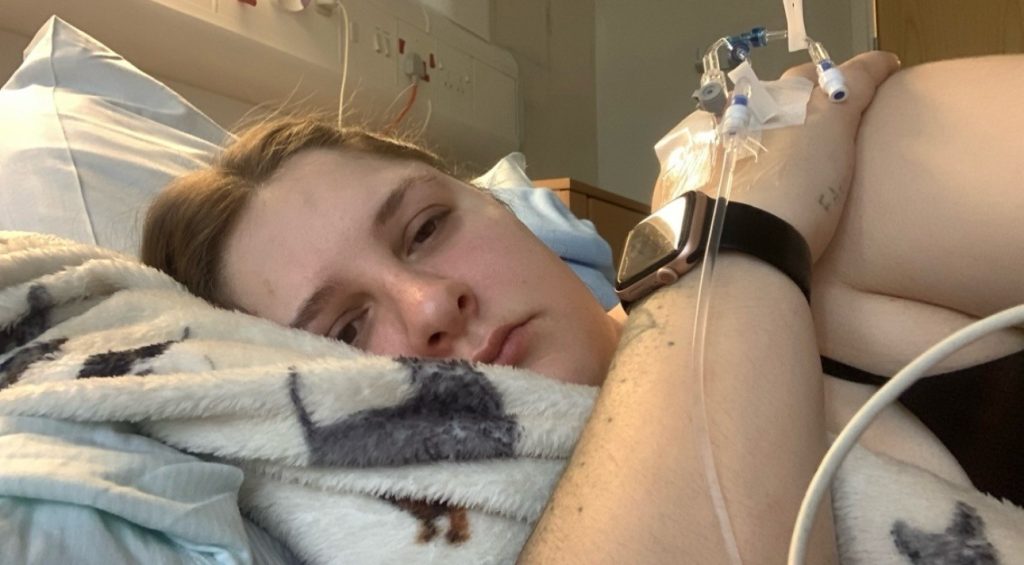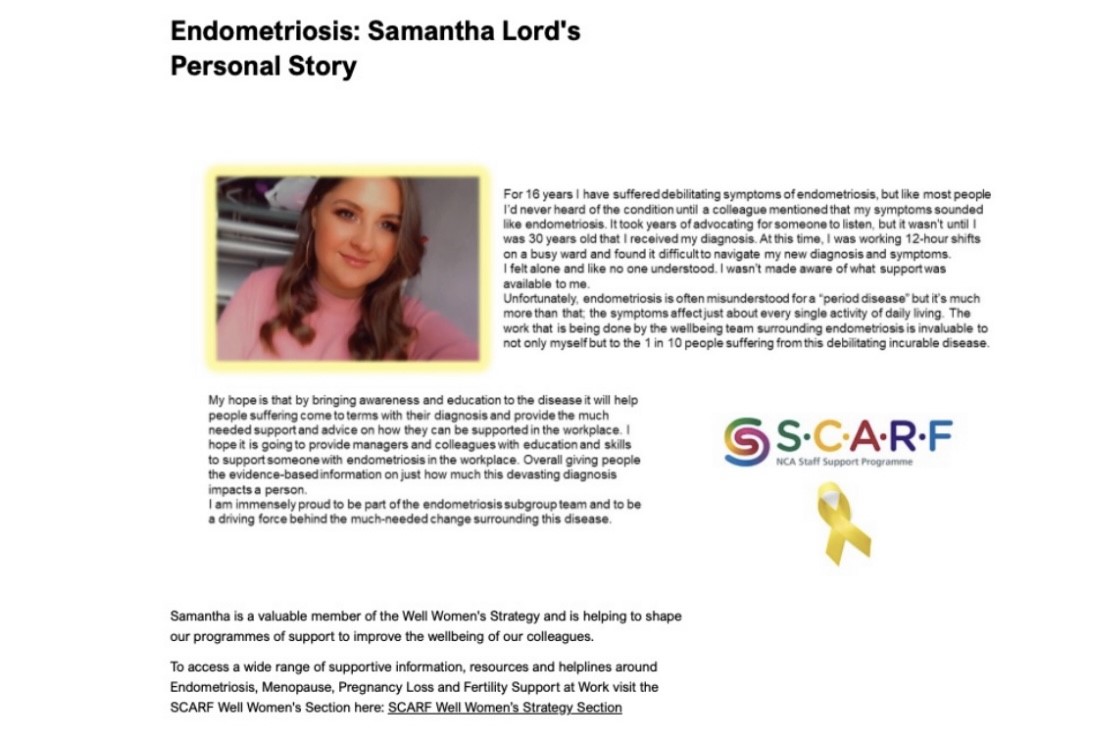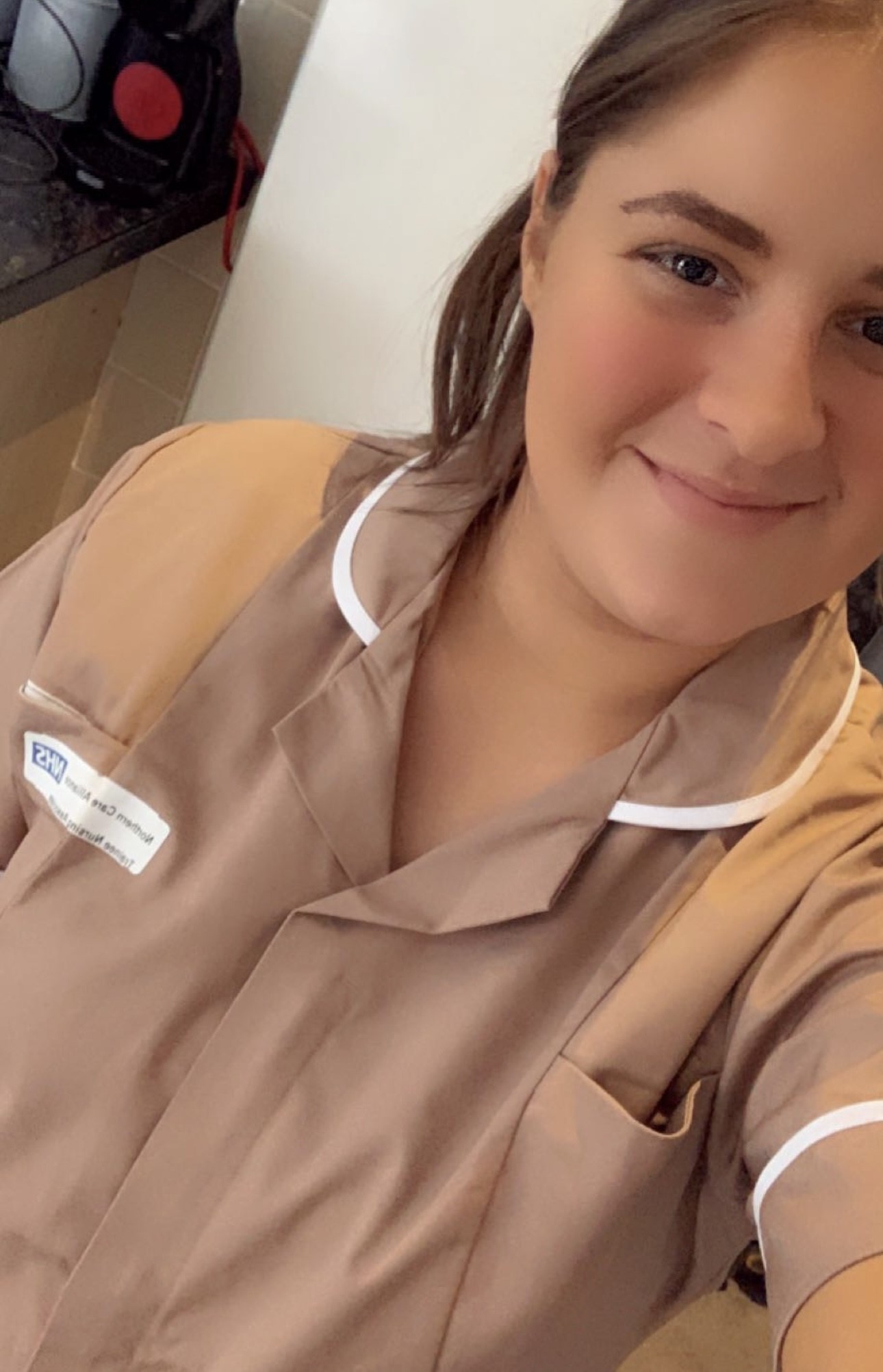
A trainee nursing associate at Salford University has helped reform a NHS policy on how they should treat colleagues suffering with endometriosis.
She has campaigned to reform a policy after suffering from the condition so severely she needed seven specialist surgeries in one year.
Endometriosis is defined as “the presence of endometrial tissue outside the uterus inducing a chronic inflammatory reaction”. It can affect anyone assigned female at birth (AFAB) from puberty, with around 1 in 10 AFAB suffering from this.
Samantha Lord has worked for the NHS since she was 19, but when she stepped onto the accelerated program at the University of Salford, she joined a ‘well women’s initiative’ within the NCA (Northern Care Alliance) looking at problems women face in the workplace. Here, she led the endometriosis policy, to discuss realistic change from a patient and staff point of view.
The reformed policy emphasises the need for open communication, compassionate support, and the provision of reasonable adjustments in the workplace to accommodate the needs of those struggling with this and similar conditions. The policy also discusses flexible and hybrid working and uniform changes to account for bloating, which helps those suffering stay in their jobs.
Lord commented: “My symptoms started when I was 15 with chronic lower back pain, because I was so young it was brushed off.
“I hadn’t heard of endometriosis, but I then collapsed and they found out I had stage four endometriosis on my diaphragm, as it was so severe I ended up with frozen pelvis.
“It was only then I realised the seriousness of the condition, it took me 16 years to get a diagnosis and then I had seven surgeries in one year under a specialist as I was such a complex case, and that’s what inspired me.
“I work in a surgical department (that involves gynaecological care), all of their stories are similar to mine; they are dismissed, they feel no-one believes them, they are told it’s in their heads, and this is why I try and advocate from their side as well, I’m pushing from all sides- as a patient advocate, as a staff advocate but also at university.”
Through her experiences with the condition, she helped contribute to the rewriting of the Endometriosis and Menstrual Health Policy for the Northern Care Alliance (NCA).
On the Endometriosis UK website, there is a list of companies of their endometriosis friendly employers so sufferers can see the companies that would support them, and the NCA is listed as one of these.

Samantha Lord discussed the importance of the NHS recognising the need for this change and the impact this will have in the future.
She said: “We’ve made a pledge to being supportive of those with endometriosis. I feel a personal responsibility to these women, because we are the front line.
“I want to carry on educating people so hopefully in 10 years’ time women aren’t going through this long wait for diagnosis anymore.
“We are the NHS and we can try and raise awareness to help reduce the diagnosis time, I think the change needs to come from within the NHS. If we keep talking about it, more people will feel confident to advocate for themselves, because they are armed with the correct information.”

Nicole Blythe is the Programme Lead for the Nursing Associate Apprenticeships at Salford University.
She said: “Samantha’s insights and recommendations have been invaluable in shaping the Trust’s approach to supporting individuals with endometriosis.”
Samantha almost had to leave her job due to the condition.
She said: “There was a time when I thought I was never going to be able to work again, I was in so much pain, bleeding everyday, I didn’t know how I was going to look after my patients.
“You lose a lot when you get a diagnosis; you lose your social life, you lose your identity, you go through a grieving stage of being lost in who you are, and the thought of losing my job, was awful.”
“I’m very proud, because I felt so alone not knowing who to turn to and everyone who is on that journey to diagnosis feels the same, to be that person that people can come to. If I had someone like that it would have been invaluable for me, it would have been the difference between feeling like I was drowning, to feel like someone is on my side.”
Salford currently doesn’t have a specific Endometriosis support group, with the closest being in Manchester, More information can be found here.















Recent Comments